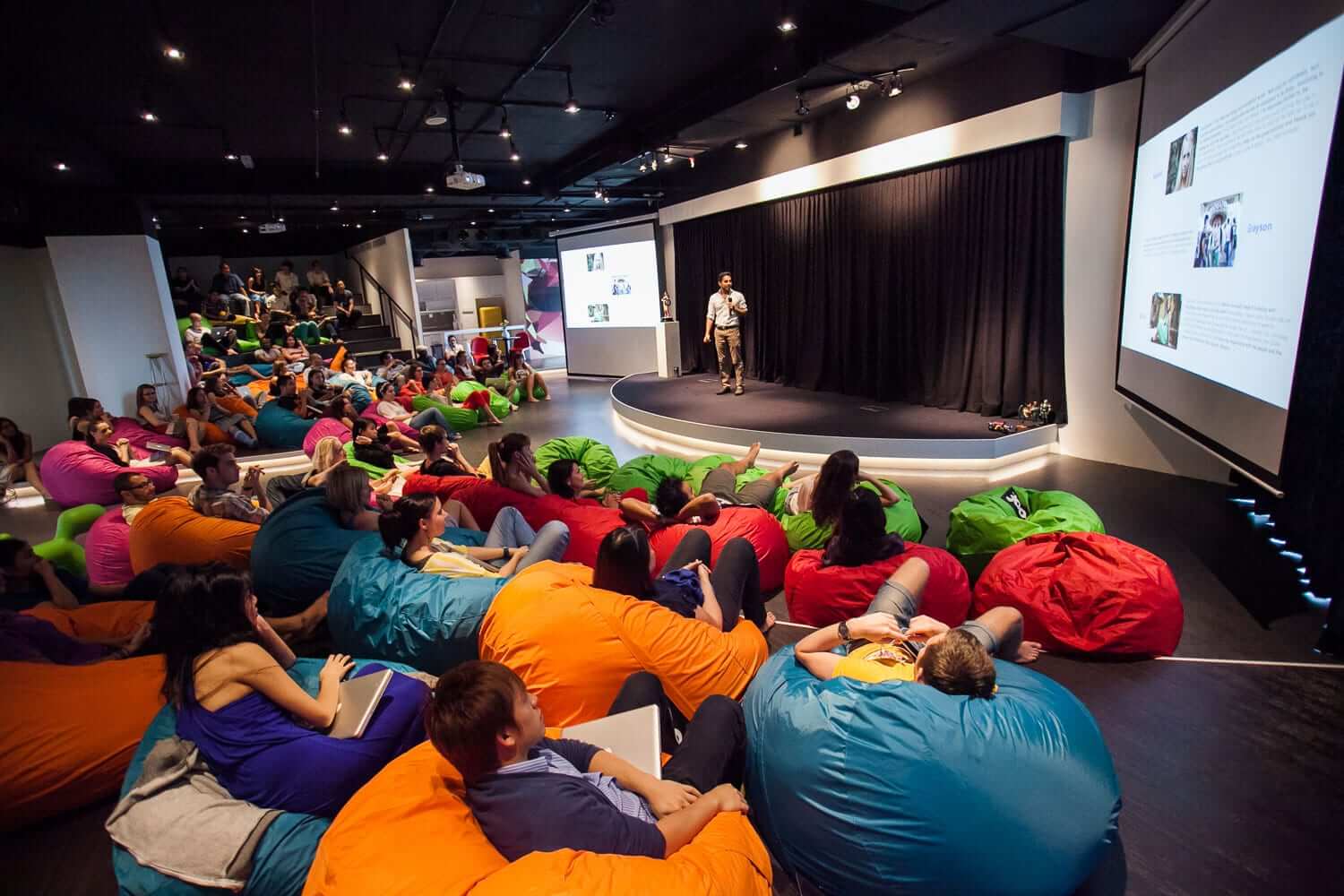If the average startup team member works 50 hours a week and gets 8 hours sleep a night, that means we all spend around 44% of the time we’re awake, at work. With nearly all of that time spent in the presence of your colleagues discussing work related subjects, where and when do people gain the opportunity to engage with them on a personal level?
What I mean by this is; Do your employees know more about the person sat next to them than just their name? Do they understand what they’re interested in and what drives them?
A recent study by OfficeVibe revealed that “office friendships have a direct link with engagement and productivity”, so can we really afford not to be nurturing social interaction within our companies?
The Competing Values Framework by Kim Cameron and Robert Quinn is a useful tool for breaking down the three main areas regarding company culture as a whole;
- Type (what is your culture)
- Strength (how strong is it)
- Congruence (how consistent is it)
The social aspect of your team culture feeds directly into the strength and congruence sections of this matrix. For defining your culture and how to hire for it, check out our Head of Talent’s post on ‘‘Hiring for Cultural Fit’.
Social team culture means much more than just the monthly social, it’s also the everyday interactions you provide and cultivate within your office environment that allow social activity to happen. Below I discuss some considerations for promoting and improving your social team culture.
Start from the top
Investing time into social activity with your team inside and outside the workplace starts from the top. Manager contribution and investment plays a big part in how the rest of the team perceives “fun” and non-work related activity. Particularly in small startups, team members often adopt the same approach founders and managers have to socialising, believing if they don’t do the same it’ll be frowned upon. If you want to promote a cohesive, engaged and open team environment, lead by example. Be present, be positive and avoid talking shop outside of meetings & work discussions.
Office Layout
Optimising the layout of the desks in your office can work wonders in creating ‘accidental interactions’. Long banks of desks make approaching co-workers for an off-the-cuff ‘how was your weekend?’ conversation extremely difficult. Instead, opt for smaller banks of desks that break up team cliques and eliminate employees with their backs to the office.
This can also be said for communal areas such as kitchens and breakout areas. Just like in the home, kitchens are hives of activity; where there’s food, there’s people. Focus on making these areas as accommodating and comfortable as possible. Long lunch benches and a variety of breakout areas encourage people to stay and engage for longer.
Organised Socials
Monthly socials, although commonplace, are extremely important for workplace culture. They’re not just about allowing your team to socialise, they’re also an opportunity to say; ‘you work really hard, let your hair down’. The real battle with a team social is attendance, it doesn’t matter how hard you try, there will always be a handful who feel slightly uncomfortable by the unknown entity that is ‘organised fun’. Don’t lose sleep over the few, it’s impossible to please everyone, but aim for the many and hope the few are converted in time. Avoid imposing a calendar of events that doesn’t compliment your team, listen to them, gain informal feedback and try ideas they suggest . After a couple of tries you’ll get a feel of what works for the majority and matches your culture.
Informal socials
Keeping the frequency of social activity going is also important, here at Forward Partners we have several weekly activities that involve all or just a handful of employees. We have weekly team lunches, Friday beers with peers, coffee walks, pub lunches, team lunches, 1:1’s on the tennis court. All informal and open to all, but not compulsory. Most of these have developed out of friendships made between colleagues and extended into more regular occurrences with more colleagues. Enhanced frequency and the strength of your social culture will come from facilitating a freedom for employees to define what fun means to them, who they choose to have it with and when.
Get ahead of the game
We’ve had really positive feedback at Forward Partners on the benefits of getting future employees engaged in social activity before they officially start. Notice periods are no-man’s land for employees, so get ahead of the game by integrating them into their new company quicker by inviting them to socials. You’ve then halved all of your formal first day introductions and given a taster of the culture they’ll be contributing to. Hopefully it’ll get them excited for the new chapter to come and already have kicked started their social journey with the team.
Just as culture will vary from company to company, so will the ways in which employees socialise with each other. Organised fun, is no fun. However, offering a consistent, supportive and varied offering of social engagement allows employees to define relationships and opt into a social culture that works for them.
If you’ve hired the right people who are living your shared values, the social culture will flourish as long as it has the right foundations.
_________________________________________________________
About the Author
This article was written by Tara Howard, Operations Manager at the Path Forward. The Path Forward was developed by Forward Partners, a VC platform that invests in the best ideas and brilliant people. Forward Partners devised The Path Forward to help their founders validate their ideas, build a product, achieve traction, hire a team and raise follow on funding all in the space of 12 months. The Path Forward is a fantastic startup framework for you to utilise as an early stage founder or operator. The framework clearly defines startup creation as being comprised of three steps. The first step of this framework involves understanding customer’s needs.Nic is Head of PR & communications at Forward Partners. Over the course of a 10 year career in communications, he has working with global brands including Orange, Warner Bros., BBC, and amazon.co.uk.





























